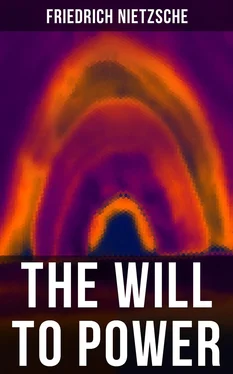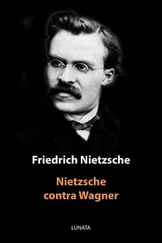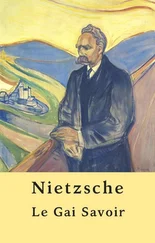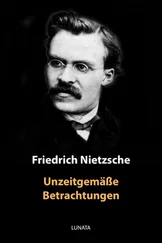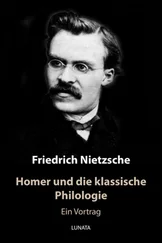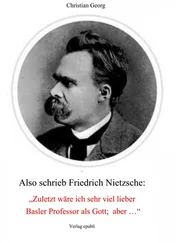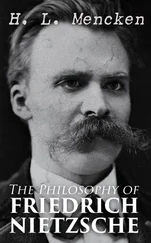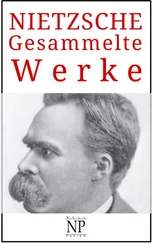231.
Sleep is the result of every kind of exhaustion; exhaustion follows upon all excessive excitement....
In all pessimistic religions and philosophies there is a yearning for sleep; the very notion "sleep" is deified and worshipped.
In this case the exhaustion is racial; sleep regarded psychologically is only a symbol of a much deeper and longer compulsion to rest.... In praxi it is death which rules here in the seductive image of its brother sleep....
232.
The whole of the Christian training in repentance and redemption may be regarded as a folie circulaire arbitrarily produced; though, of course, it can be produced only in people who are predisposed to it—that is to say, who have morbid tendencies in their constitutions.
233.
Against remorse and its purely psychical treatment. —To be unable to have done with an experience is already a sign of decadence. This reopening of old wounds, this wallowing in self-contempt and depression, is an additional form of disease; no "salvation of the soul" ever results from it, but only a new kind of spiritual illness....
These "conditions of salvation" of which the Christian is conscious are merely variations of the same diseased state—the interpretation of an attack of epilepsy by means of a particular formula which is provided, not by science, but by religious mania.
When a man is ill his very goodness is sickly.... By far the greatest portion of the psychical apparatus which Christianity has used, is now classed among the various forms of hysteria and epilepsy.
The whole process of spiritual healing must be remodelled on a physiological basis: the "sting of conscience" as such is an obstacle in the way of recovery—as soon as possible the attempt must be made to counterbalance everything by means of new actions, so that there may be an escape from the morbidness of self-torture.... The purely psychical practices of the Church and of the various sects should be decried as dangerous to the health. No invalid is ever cured by prayers or by the exorcising of evil spirits: the states of "repose" which follow upon such methods of treatment, by no means inspire confidence, in the psychological sense....
A man is healthy when he can laugh at the seriousness and ardour with which he has allowed himself to be hypnotised to any extent by any detail in his life—when his remorse seems to him like the action of a dog biting a stone—when he is ashamed of his repentance.
The purely psychological and religious practices, which have existed hitherto, only led to an alteration in the symptoms : according to them a man had recovered when he bowed before the cross, and swore that in future he would be a good man.... But a criminal, who, with a certain gloomy seriousness cleaves to his fate and refuses to malign his deed once it is done, has more spiritual health.... The criminals with whom Dostoiewsky associated in prison, were all, without exception, unbroken natures,—are they not a hundred times more valuable than a "broken-spirited" Christian?
(For the treatment of pangs of conscience I recommend Mitchell's Treatment. 2)
234.
A pang of conscience in a man is a sign that his character is not yet equal to his deed. There is such a thing as a pang of conscience after good deeds : in this case it is their unfamiliarity, their incompatibility with an old environment.
235.
Against remorse. —I do not like this form of cowardice in regard to one's own actions, one must not leave one's self in the lurch under the pressure of sudden shame or distress. Extreme pride is much more fitting here. What is the good of it all in the end! No deed gets undone because it is regretted, no more than because it is "forgiven" or "expiated." A man must be a theologian in order to believe in a power that erases faults: we immoralists prefer to disbelieve in "faults." We believe that all deeds, of what kind soever, are identically the same at root; just as deeds which turn against us may be useful from an economical point of view, and even generally desirable. In certain individual cases, we admit that we might well have been spared a given action; the circumstances alone predisposed us in its favour. Which of us, if favoured by circumstances, would not already have committed every possible crime?... That is why one should never say: "Thou shouldst never have done such and such a thing," but only: "How strange it is that I have not done such and such a thing hundreds of times already!"—As a matter of fact, only a very small number of acts are typical acts and real epitomes of a personality, and seeing what a small number of people really are personalities, a single act very rarely characterises a man. Acts are mostly dictated by circumstances; they are superficial or merely reflex movements performed in response to a stimulus, long before the depths of our beings are affected or consulted in the matter. A fit of temper, a gesture, a blow with a knife: how little of the individual resides in these acts!—A deed very often brings a sort of stupor or feeling of constraint in its wake: so that the agent feels almost spellbound at its recollection, or as though he belonged to it, and were not an independent creature. This mental disorder, which is a form of hypnotism, must be resisted at all costs: surely a single deed, whatever it be, when it is compared with all one has done, is nothing, and may be deducted from the sum without making the account wrong. The unfair interest which society manifests in controlling the whole of our lives in one direction, as though the very purpose of its existence were to cultivate a certain individual act, should not infect the man of action: but unfortunately this happens almost continually. The reason of this is, that every deed, if followed by unexpected consequences, leads to a certain mental disturbance, no matter whether the consequences be good or bad. Behold a lover who has been given a promise, or a poet while he is receiving applause from an audience: as far as intellectual torpor is concerned, these men are in no way different from the anarchist who is suddenly confronted by a detective bearing a search warrant.
There are some acts which are unworthy of us: acts which, if they were regarded as typical, would set us down as belonging to a lower class of man. The one fault that has to be avoided here, is to regard them as typical. There is another kind of act of which we are unworthy: exceptional acts, born of a particular abundance of happiness and health; they are the highest waves of our spring tides, driven to an unusual height by a storm—an accident: such acts and "deeds" are also not typical. An artist should never be judged according to the measure of his works.
236.
A. In proportion as Christianity seems necessary to-day, man is still wild and fatal....
B. In another sense, it is not necessary, but extremely dangerous, though it is captivating and seductive, because it corresponds with the morbid character of whole classes and types of modern humanity, ... they simply follow their inclinations when they aspire to Christianity—they are decadents of all kinds.
A and B must be kept very sharply apart. In the case of A, Christianity is a cure, or at least a taming process (under certain circumstances it serves the purpose of making people ill: and this is sometimes useful as a means of subduing savage and brutal natures). In the case of B, it is a symptom of illness itself, it renders the state of decadence more acute ; in this case it stands opposed to a corroborating system of treatment, it is the invalid's instinct standing against that which would be most salutary to him.
Читать дальше
